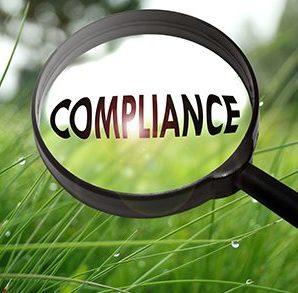
Effective eMarketing – Don’t be Content with Subpar Content
by Rachel Fields, Client Success Consultant
 In previous posts, we addressed best practices for eMarketing and email design as well as internal processes for creating good email communications. If it seems that you’re doing everything right and your email metrics are still disappointing, what’s left to improve? Well, let’s look the 10,000-pound elephant in the room squarely in the eye: your content.
In previous posts, we addressed best practices for eMarketing and email design as well as internal processes for creating good email communications. If it seems that you’re doing everything right and your email metrics are still disappointing, what’s left to improve? Well, let’s look the 10,000-pound elephant in the room squarely in the eye: your content.
For law firms, the content is typically written by the lawyers. This can be… well, a bit challenging, because many lawyers are legal writers,

Effective eMarketing – Processes & Procedures for Efficient Email Campaigns
by Rachel Fields, Client Success Consultant

Why is it so hard for Marketing to get an email communication out the door in a timely manner? In working together with hundreds of law and other professional services firms over the last 10 years, this is one of the most frequent complaints we hear from Clients.
Law firms collectively spend thousands of hours of billable time creating content, and frequently this information is time-sensitive. In some cases, the firm that gets the information to Clients or prospects first gets hired. But if the information is not sent in a timely manner,

Effective eMarketing – Processes & Procedures for Efficient Email Campaigns
– By Rachel Fields, Client Success Consultant

Why is it so hard for Marketing to get an email communication out the door in a timely manner? In working together with hundreds of law and other professional services firms over the last 10 years, this is one of the most frequent complaints we hear from Clients.
Law firms collectively spend thousands of hours of billable time creating content, and frequently this information is time-sensitive. In some cases, the firm that gets the information to Clients or prospects first gets hired. But if the information is not sent in a timely manner,

GDPR and CASL: Why Data Privacy Rules Are Good for Data Quality
by Rachel Fields, Client Success Consultant

For professional services firms, compliance with regulations such as the General Data Protection Regulation (GDPR) in Europe and the Canadian Anti-Spam Legislation (CASL) can feel like a thankless burden. Without a doubt, data privacy regulations are forcing most organizations to change the way that data is handled in their CRM systems. But it’s not all bad news. In fact, there are benefits to be had from these process changes other than just the relief of knowing you are compliant with the regulations.
The GDPR requirement of recording of express consent from contacts before sending them a newsletter or an event invitation may seem initially seem harsh,

GDPR Compliance: Process, Communications & Testing
by Rachel Fields, Client Success Consultant
 In last week’s post we covered the basics of GDPR and new data privacy regulations as well as preparation of your contact data and CRM system to accommodate new data privacy information. (In case you missed it, read “GDPR Compliance: How to Prepare and Where to Begin”).
In last week’s post we covered the basics of GDPR and new data privacy regulations as well as preparation of your contact data and CRM system to accommodate new data privacy information. (In case you missed it, read “GDPR Compliance: How to Prepare and Where to Begin”).
Now, with your CRM data prepared and your system configured to manage the new data privacy requirements, you’re ready to address processes, automation, and communication with your clients and contacts.
Create the Process
The specifics of automation will vary depending on your organization’s interpretation of the new data privacy regulations as well as the CRM and eMarketing systems in use.
GDPR Guidance: A Practical Approach to Preventing the Pain of Privacy and Anti-Spam Compliance

The General Data Protection Regulation (GDPR) goes into effect May 25, 2018. For some professional services firms, preparing for GDPR can pose some daunting challenges. But with some basic guidance, you can prepare your CRM and eMarketing systems to help your firm be compliant.
Where to Begin
Has your firm already done anything to comply with the Canadian Anti-Spam Law (CASL), which went into effect in July of 2017? If so, start there. Unlike GDPR, CASL has a provision for implied consent. If your firm is relying on implied consent, it needs to be converted to express consent within two years of the date of implied consent OR the conditions of implied consent must be renewed within two years.

GDPR Compliance: How to Prepare and Where to Begin
by Rachel Fields, Client Success Consultant

The General Data Protection Regulation (GDPR) goes into effect May 25, 2018. For some professional services firms, preparing for GDPR can pose some daunting challenges. But with some basic guidance, you can prepare your CRM and eMarketing systems to help your firm be compliant.
Where to Begin
Has your firm already done anything to comply with the Canadian Anti-Spam Law (CASL), which went into effect in July of 2017? If so, start there. Unlike GDPR, CASL has a provision for implied consent.

Top Tips for Email Marketing Success
by Rachel Fields, Client Success Consultant
 Despite the challenges we all sometimes face with the sheer volume, email is still an essential tool for connecting with Clients and prospects. Whether you’re updating them on legal developments or inviting them to an event, the goal of email marketing is to help keep the firm and professionals top-of-mind. To enhance your email marketing success, here are 15 Best Practices to help ensure your email marketing is effective and avoids the spam filter.
Despite the challenges we all sometimes face with the sheer volume, email is still an essential tool for connecting with Clients and prospects. Whether you’re updating them on legal developments or inviting them to an event, the goal of email marketing is to help keep the firm and professionals top-of-mind. To enhance your email marketing success, here are 15 Best Practices to help ensure your email marketing is effective and avoids the spam filter.
- Email subject lines should be 40 to 60 characters long (including spaces).
Avoiding the Spam Trap: Spam Filter Trigger Words
Spam filters are the bane of marketing departments everywhere. For professional services firms, it can be particularly frustrating when your carefully constructed newsletter or alert doesn’t get delivered. The risk of this happening is even greater if you’ve just switched marketing email providers and are still establishing your sender reputation on a new IP address.
It’s important to always be aware of what triggers spam filters. To see some of these triggers, read the accompanying article “Top Tips for Email Marketing Success” from CLIENTSFirst Consulting, but when starting with a new IP it is particularly important to send emails that are above reproach.

Top Tips for Email Marketing Success
Despite the challenges we all sometimes face with the sheer volume, email is still an essential tool for connecting with Clients and prospects. Whether you’re updating them on legal developments or inviting them to an event, the goal of email marketing is to help keep the firm and professionals top-of-mind. To enhance your email marketing success, here are 15 Best Practices to help ensure your email marketing is effective and avoids the spam filter.
- Email subject lines should be 40 to 60 characters long (including spaces). This will help ensure that the full text can be read across multiple devices and platforms.